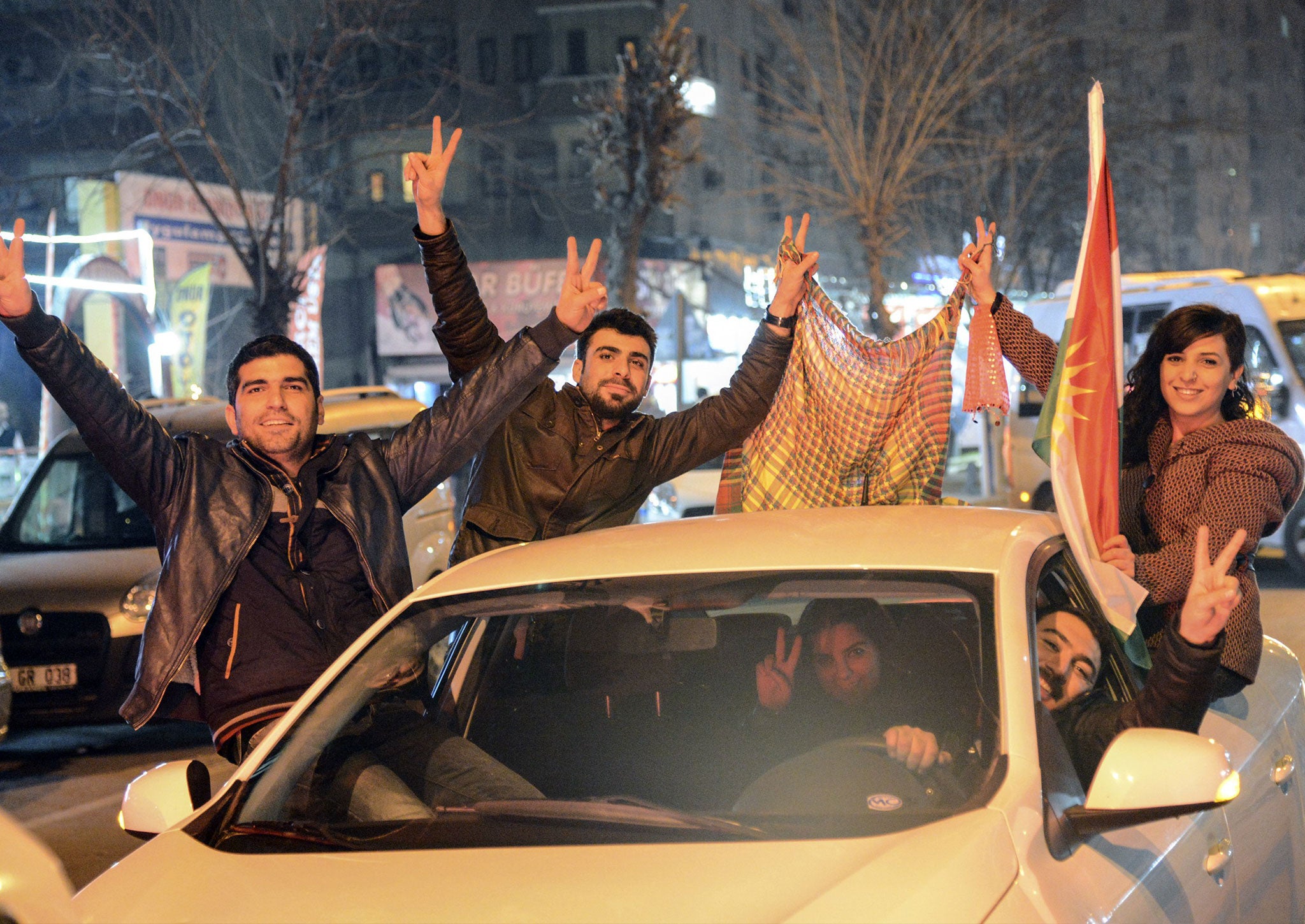Isis has finally been defeated in Kobani — but what happens next?
There's so much to learn from the victory of a small but determined group of Kurds

Your support helps us to tell the story
From reproductive rights to climate change to Big Tech, The Independent is on the ground when the story is developing. Whether it's investigating the financials of Elon Musk's pro-Trump PAC or producing our latest documentary, 'The A Word', which shines a light on the American women fighting for reproductive rights, we know how important it is to parse out the facts from the messaging.
At such a critical moment in US history, we need reporters on the ground. Your donation allows us to keep sending journalists to speak to both sides of the story.
The Independent is trusted by Americans across the entire political spectrum. And unlike many other quality news outlets, we choose not to lock Americans out of our reporting and analysis with paywalls. We believe quality journalism should be available to everyone, paid for by those who can afford it.
Your support makes all the difference.Kurdish fighters in Syria’s north-east region of Rojava, or Syrian Kurdistan, have repelled Isis militants from the previously besieged town of Kobani.
The town was surrounded by Isis four months ago. Its fate was uncertain, and Syria’s Kurds were preparing for the sort of massacres inflicted by the jihadists elsewhere. However, Syria’s Kurds have proved resistant and, in the process, destroyed Isis’ aura of invincibility.
Fighters from the Democratic Union Party (PYD), the ruling party of Syrian Kurdistan, have proved two things. Firstly, that Isis can be contained and defeated on the ground. But also, that with local forces on the ground, Western military support and air-power can in fact work, and without the need for a Western or international troop presence.
Syria’s Kurds have succeeded because of their organisation, proper control structure, and professionalised fighting force. This is important, because they managed to repel Isis with far fewer resources than their Arab counterparts fighting Isis and Assad elsewhere in the country, as well as their Kurdish counterparts in Iraqi Kurdistan.
The rise of the PYD and Syrian Kurdistan has implications for the future of the conflict and Western policy towards it. The West’s traditional allies in the region have become severely weakened since the Arab Spring protests and the conflict in Syria. That means the West has to decide whether to fully engage with and empower non-state actors like the PYD or, alternatively, wait for countries like Turkey – who remain more committed to overthrowing Assad than to fighting Isis – to shift the balance against the jihadist group.
That, however, would be a miscalculation. The West cannot afford to wait for Turkey to decide where it stands in the war against Isis, given the grave threat the jihadist group presents to the international community at large. The PYD’s victory in Kobani is not because of Turkish support, which prevented fighters and resources within Turkey from reaching Kobani, but in spite of it.
The PYD, along with Iraq's Kurds, have proven themselves steadfast allies in the war against Isis. But they are in need of constant supplies and reinforcements. But they also require legitimacy, and a broader framework that allows for a democratic and political process in Syrian Kurdistan, particularly one that is internationally acknowledged and supported. This will further help in the effort to fight Isis since, by preserving the rights and the future of Syria’s Kurds and by giving them such reassurances, it puts them in sync with the broader anti-Isis coalition. It also ensures that at least one success story emerges from the Syria conflict and indeed one viable geo-strategic partner for the future.
This is all about the West influencing the region on the ground. If the international community and the anti-Isis coalition, currently being led by the US, is serious about defeating Isis, then it must start by adopting creative and realistic policies that offers a break from the past and from regional actors that, for too long, have hindered the fight against radical Islam.
Join our commenting forum
Join thought-provoking conversations, follow other Independent readers and see their replies
Comments